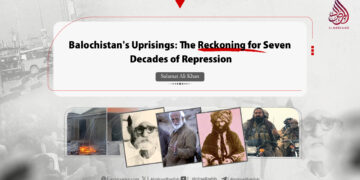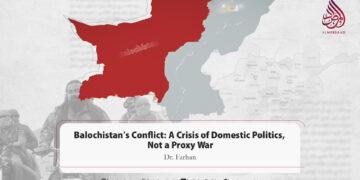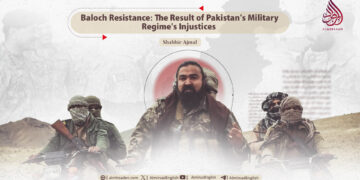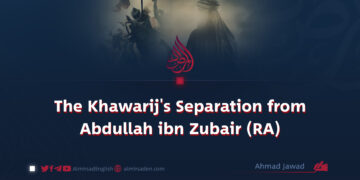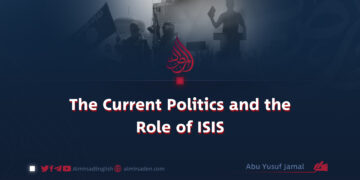Part 1
Author: Bashir Baran
This article is penned at a time when, regrettably, several prominent Islamic nations have entered into a series of engagements with the United States, driven purely by economic motives. These nations seek to acquire billions of dollars’ worth of advanced weaponry to modernize and strengthen their military forces. Meanwhile, the people of Gaza continue to suffer in helplessness and despair, enduring relentless and brutal assaults by Israel—executed with the latest weaponry and equipment manufactured by none other than the United States.
Engaging with non-believing nations is a necessity in the contemporary era for any Islamic system. However, this necessity must never come at the cost of compromising the religious identity, dignity, or independence of the Islamic system. Any such engagement must maintain a careful balance of interests while fully considering the consensus and well-being of the Muslim populace.
When addressing the issue of diplomatic or strategic interaction between an Islamic system and non-believing nations, it is imperative to revisit the foundational principles of Islamic foreign policy and history. Approaching these matters blindly or merely adhering to international or Western conventions without proper scrutiny can lead to disgrace and subjugation. In this context, three fundamental principles should guide such interactions:
1. Preservation of Islamic Values and Honor
Safeguarding the sanctity of Islam and its foundational values is of utmost importance. Since the inception of Islam, countless individuals have sacrificed their lives for the preservation of these sacred tenets. The Holy Qur’an, Prophetic traditions, and Islamic jurisprudence all provide clear guidance on this matter. Therefore, every act of engagement must be rooted in the preservation of Islamic principles, ensuring that the dignity, respect, and identity of the Muslim Ummah remain intact.
2. Commitment to Security and Stability
Diplomatic engagements and treaties serve not only their immediate strategic purposes but also aim to foster peace and stability. In certain cases, achieving security and order may necessitate calculated, temporary alignments based on prevailing interests. However, any arrangement that results in the subjugation, occupation, or long-term dependence of the Islamic society must be categorically rejected. The example of the American occupation of Afghanistan is instructive: agreements were signed under the pretense of bringing peace and stability, yet they failed miserably. Rather than establishing order, these accords crumbled in the face of resistance from the Mujahideen of the Islamic Emirate (IEA), forcing the occupying forces to flee early in the confrontation.
3. Protection of Mutual and Legitimate Interests
All interactions and agreements ideally aim at securing mutual benefits. However, whenever an Islamic system engages with non-Muslim entities, such interactions must be confined within the bounds of legitimacy as defined by Islamic economic and political principles. No illegitimate or unjust demands should be imposed upon the Islamic party, nor should it accept conditions that undermine its sovereignty, jeopardize its future, or burden future generations with trials and subjugation.
With these principles in mind, it is essential to consider the broader historical and ideological foundations of Islam in the context of international relations.
Islam is not just a religion; it is a comprehensive and universal legal system. It envisions a world where all people live under divine law rather than arbitrary human legislation. In this divine framework, superiority is not based on lineage, ethnicity, or geography, but on piety and adherence to eternal principles. Leaders and authorities are called to govern with humility, accountability, and fear of Allah Almighty, rather than through tyranny or pride.
It was for this reason that the Messenger of Allah, Prophet Muhammad (PBUH), paid special attention to matters of international engagement. His unwavering faith, resolute determination, trust in Allah, and self-reliance formed the cornerstone of the Islamic approach to foreign policy. During the Prophetic era, religious values were safeguarded within the bounds of political conduct, and a principled framework was established for future generations.
Islam is inherently a social religion, with its laws and directives intricately interwoven and based on divine principles. It governs not only the relationship between the believer and Allah but also the believer’s interactions with fellow human beings. As such, Islam serves not merely as a moral or spiritual guide; it is a holistic legal and political system. The deeply social nature of Islam highlights its practicality and alignment with human nature, demonstrating its capacity to provide a viable and just framework for both governance and international relations.
















